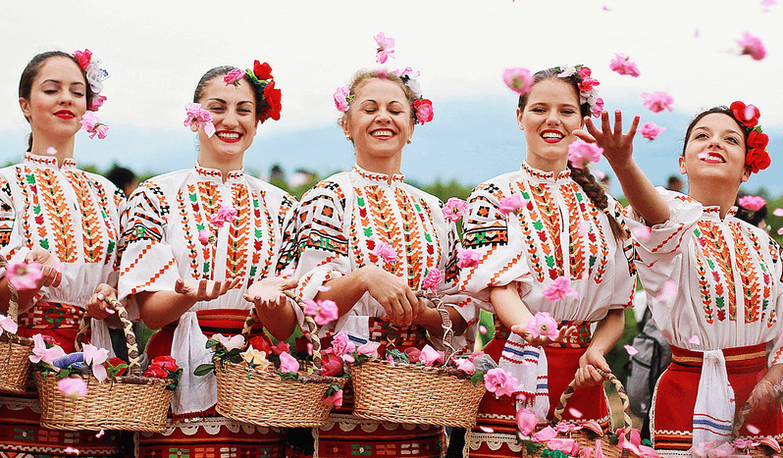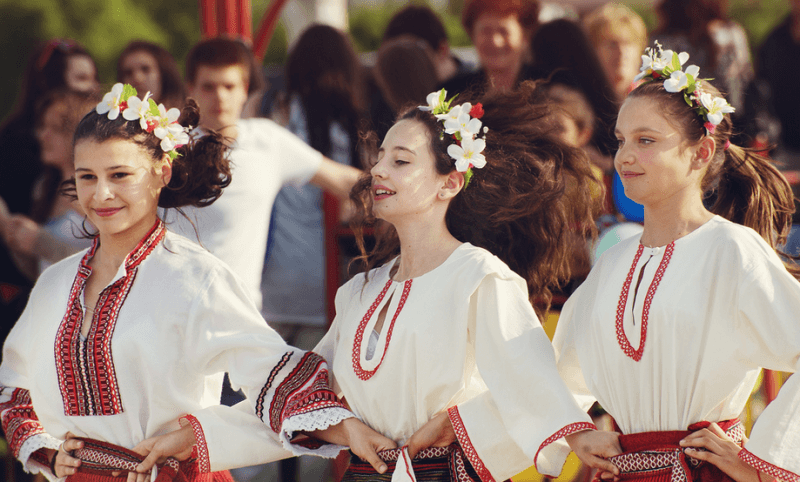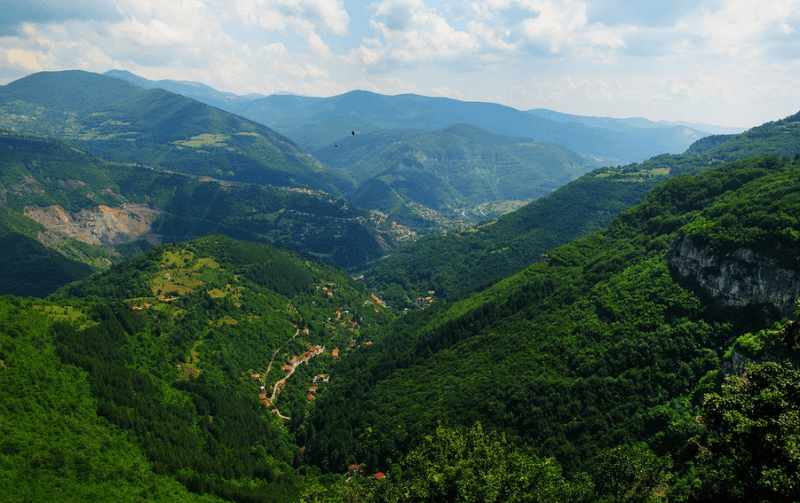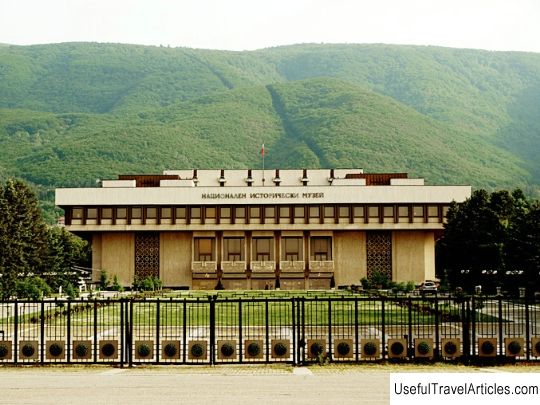Culture and traditions of Bulgaria
Rating: 8,0/10 (3764 votes)   Rose Festival The Bulgarian people are very proud of their cultural heritage. National traditions are reflected in modern life, they are passed along with legends and rituals from generation to generation. Different peoples have lived on the Bulgarian lands since ancient times. Each of these peoples left their mark on the Bulgarian culture. According to statistics, Bulgaria is in third place, behind Greece and Italy, in terms of the number of historical monuments and places. The Bulgarian culture mixed Slavic, Greek, Thracian, Turkish, Greek, Gypsy and Roman cultures. Bulgaria is the cradle of Slavism; many famous people have appeared on this land. For example, Clement of Orkhid is a Bulgarian educator, was canonized. In memory of him, on May 24, Bulgaria celebrates the Day of Slavic Writing and Enlightenment. Bulgarians are a very religious people (85% of the population are Orthodox Christians), so the church and faith are in the first place for them. Thanks to the construction of temples and cathedrals, the architecture of the country began to develop. The most famous monuments of medieval architecture: Ivanovo rock churches, which are carved from solid rocks, Boyana Church, Rila Monastery. They are all included in the UNESCO World Heritage List.  Rila Monastery The art of Bulgaria has deep historical roots. Frescoes and icons are a vivid example of the fine arts of Bulgaria, the found Thracian tombs of Kazanlak are proof of this. A collection of medieval icons is located in the Alexander Nevsky Cathedral. The oldest icon dates back to the 9th century. At the turn of the 13th and 14th centuries, the Tarnovo Art School was founded. After the fall of the Ottoman Empire, the cultural revival of Bulgaria began, including the fine arts, which fell under the influence of artistic trends in Europe. Music occupies an important place in the life of the Bulgarian people. According to ancient Greek legends, the legendary Orpheus with muses lived on the territory of Thrace. The beginning of the development of music is considered to be the formation of the Second Bulgarian Kingdom, which began after the liberation from Byzantine rule. Bulgarian songs have a special secret and penetrate deeply into the soul. John Kukuzel became famous in those days for his soulful voice. The domination of the Ottoman Empire froze the development of Bulgarian art. After the liberation of the country, the first Bulgarian Opera was created. Bulgarian voices have an incredible range that is being studied by Bulgarian experts. The variety of Bulgarian songs is also surprising. They take first places in international folklore and song competitions. Folklore festivals"Pirin sings" and"Rozhen sings" are the most popular and large-scale festivals in Bulgaria. Family occupies an important place in the life of Bulgarians, in Bulgaria there are often large families. Sometimes several generations can live under one roof. Bulgarian families are very friendly and always, if necessary, come to each other's aid. Elderly people are especially honored and respected. They are the first to be greeted and the first to be invited to the table, always giving way. Their opinion is always taken into account.  Rose Festival, Kazanlak The country still observes ancient traditions and customs, which originated in the days of people's faith in the forces of nature. These traditions consist of mystical Bulgarian voices along with colorful costumes and national dances, accompanied by fun and songs. The dance nestinar, which is performed on embers, is very popular. This dance has deep historical roots. It is an ancient mystical rite for health and fertility. It is believed that its members get rid of all diseases. In June, near the town of Kazanlak, in the Valley of Roses, every year there is a"Festival of Roses" The festival is accompanied by a fancy-dress procession. All streets of the city are sprinkled with delicate rose petals on this day. A unique essential oil raw material is made from the Bulgarian rose, which makes up 70% of the total volume of rose oil produced in the world. Rose oil owes its unique properties to the Bulgarian climate and generous land. In early spring, the Bulgarian cities of Pernik and Dupnitsa host the Kukeri carnival, which is of a religious nature. For the carnival, participants prepare chic costumes and bright masks embroidered with beads and ribbons. For those who enter the festival for the first time, it may seem intimidating. Kukers are symbols of wheat. They pass with a swaying step, depicting the heaviness of the ripe grains. We also recommend reading Folk music of Bulgaria Topic: Culture and traditions of Bulgaria. |




